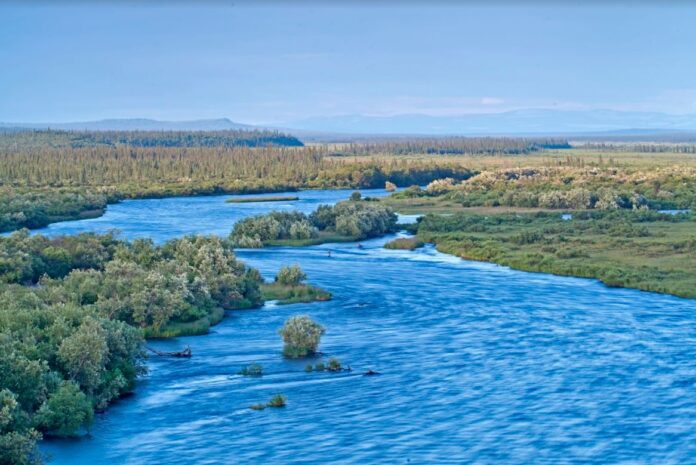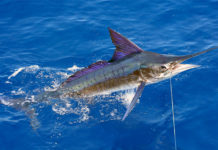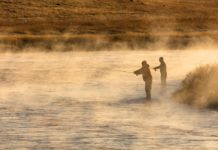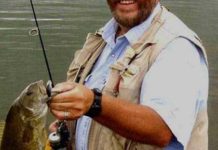Welcome to the latest installment of the Wednesday Wake-Up Call, a roundup of the most pressing conservation issues important to anglers. Working with our friends at Trout Unlimited, Backcountry Hunters & Anglers, the Theodore Roosevelt Conservation Partnership, The Everglades Foundation, Captains for Clean Water, VoteWater.org, Bonefish & Tarpon Trust, and Conservation Hawks (among others), we’ll make sure you’ve got the information you need to understand the issues and form solid opinions.
1. U.S. Army Corps of Engineers Upholds Denial of Key Pebble Mine Permit
The U.S. Army Corps of Engineers upheld its November 2020 decision to deny the Clean Water Act 404 permit to the proposed Pebble mine. The permit was denied because the proposed mine would cause significant degradation to Bristol Bay’s headwaters and was against the public interest. Pebble Limited Partnership filed the appeal in January 2021.
“The Pebble Limited Partnership’s 2020 mine plan didn’t meet basic standards, was widely opposed by Alaskans, and posed significant risks,” said Nelli Williams, Alaska program director of Trout Unlimited. “The hunting and angling community, and leaders from across the political spectrum, widely applauded the permit denial in 2020 and we commend the Army Corps of Engineers for standing by its permit denial decision. We look forward to the next chapter for Bristol Bay: establishing permanent safeguards for the region so that we don’t have to keep fighting projects that compromise the area’s jobs and incredible fish and wildlife in the future.”
Click here to read more at Save Bristol Bay
Related Stories
2. Caloosahatchee River Showing Ill Effects of Okeechobee Discharges
Now that Lake Okeechobee water has resumed discharging to the west into the Caloosahtachee River, there’s plenty of concern for what could be a rocky storm season. But things aren’t rosy even now:
On Friday, The Florida Department of Health in Lee County issued a health alert for the presence of algae blooms in the Caloosahatchee River and Alva Boat Ramp. You should not drink, swim, or engage in activities that may cause you to come into direct contact where there is visible bloom.
Click here to read more at nbc-2.com
Related Stories
3. House Passes Bipartisan EXPLORE Act to Improve Access to Outdoor Recreation
On Tuesday, TRCP joined America’s hunters and anglers in celebrating the passage of the bipartisan EXPLORE Act in the House of Representatives by a unanimous vote.
The EXPLORE Act is a first of its kind recreation package that would improve access to the outdoors and modernize recreation infrastructure.
Originally introduced by House Natural Resources Committee Chairman Bruce Westerman (R-AR) and Ranking Member Raul Grijalva (D-AZ), The EXPLORE Act is a comprehensive legislative package that would expand access opportunities to a variety of public land users, streamline permitting processes for businesses focused on providing recreation opportunities, and modernize outdoor infrastructure.
Click here to read more at TRCP.org
4. American Rivers Releases Its Annual “Most Endangered” List

American Rivers released its list of America’s Most Endangered Rivers yesterday, sounding the alarm about threats to clean water and drinking water nationwide. It’s the 39th time the organization has highlighted 10 rivers in need of attention. (Watch the video at the top of the page.)
Number one on this year’s list is the Rivers of New Mexico, threatened by a Supreme Court decision that overturned decades of federal Clean Water Act protections. The court’s May 2023 decision impacts New Mexico more than any other state – leaving roughly 96 percent of New Mexico’s streams vulnerable to pollution, with potential harmful downstream impacts to the Rio Grande, Gila, San Juan, and Pecos rivers.
“All water is connected. We cannot allow pollution anywhere without risk to the rivers we rely on for our drinking water,” said Tom Kiernan, President and CEO of American Rivers. “Our leaders must hold polluters accountable and strengthen the Clean Water Act to safeguard our health and communities.”
Other rivers on the list of interest to fly fishers include Connecticut’s Farmington River, California’s Trinity River, and Alaska’s Kobuk River.
Click here to learn about this year’s list at American Rivers
Credit: Source link































